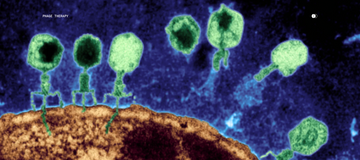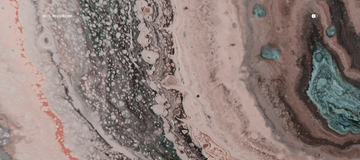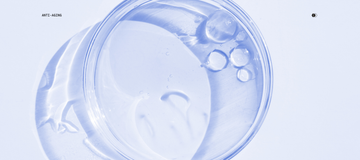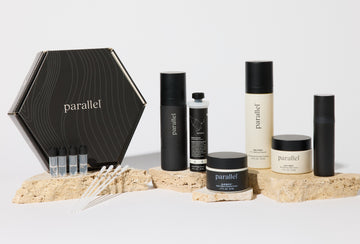I recently found myself at a stranger’s housewarming party; I was invited by my brother (12 years my senior) in an effort to bring me into his social circle. Post-covid socializing has been something many of us have had to ease back into, but it is especially unsettling when you really don't know anyone at all. So there I was, wandering the hallways of the house with awkward smiles and hellos until I eventually stumbled into a conversation with a dermatologist. We started talking about skincare and technology -- ah, something I could talk about.
After some intros, we turned to chatting about our most direct point of connection: acne. After all, I’ve had my own struggles with acne. We talked about our respective journeys, mine with acne and his in treating skin issues. Towards the end of the conversation, I asked him about his best recommendation for acne. His response? Accutane.

In some ways, I was not surprised. In today’s landscape of acne products, Accutane is held as the end-all-be-all: the final boss of anti-blemish products. When skincare products, antibiotics, and lifestyle changes fail, Accutane is considered the last resort. But I was surprised that the recommendation was made so casually. Despite its efficacy, Accutane comes bundled with a plethora of recognizable side effects, ranging from unpleasant to extreme.
Accutane, otherwise known as isotretinoin, is a natural derivative of Vitamin A that is recommended for use on severe, scarring acne, according to the American Osteopathic College of Dermatology (1). Accutane acts like a hormone and works by severely reducing sebum produced by the skin via the endocrine system (2). Sebum is an oily substance secreted by sebaceous glands on the skin, which plays a role in preserving the skin’s moisture balance and protecting it from the outside environment (3). Despite its importance in preserving skin moisture, sebum is often an underlying cause of acne and breakouts, mainly because it can clog pores and enable pathogenic strains of bacteria to overgrow, eventually causing acne breakouts and redness (4). Thus, the reduction of sebum production through the shrinking of sebaceous glands can greatly reduce acne, and hence is why Accutane is considered so effective on even the most severe breakouts. However, this efficacy comes at a cost.
Accutane comes with many physical and mental side effects. First, Accutane is commonly associated with an initial worsening in skin health. As the sebaceous glands close, all excess skin debris, oil, and other microparticles are pushed out from underneath the skin, a process known as “purging.” This leads to increased inflammation and more acne (ibid). Second, the reduction in sebum production leads to increased skin exposure to the outside environment, causing dry skin and sun sensitivity. Accutane use is commonly associated with heavy skin peeling and flaking, as well as chapped and bleeding lips (ibid). The reduction in sun protection due to the loss of sebum also puts the body at risk of skin cancer, and heavy sunscreen use is recommended as a result (ibid). Third, Accutane has severe effects on unborn children, including the potential for miscarriage or birth defects. Last of all, Accutane is known for affecting your mental health, causing mood changes and depression over its usage period. These physical and mental side effects can last for months to a year.
As you might have gathered, when my new dermatologist friend mentioned Accutane, it was not the first time I had heard of it; it was recommended to me a year back, as well. At that time and now still, however, I am unwilling to undergo the potential side effects of allowing a drug to change my entire endocrine system. That is, obtaining “clear skin,” but replacing it with peeling skin, sun sensitivity, and mental changes are not worth it (for me). Obviously, it is a personal choice for each individual and I completely understand why someone would take it. Nonetheless, in the meantime, my choice leaves me with no other option but to wait and keep using over-the-counter acne products that we all have at our disposal.
It must be fairly obvious to you now why I am so excited about Parallel Health. Parallel is pursuing a safe, effective, sustainable solution to skin blemishes and breakouts. Powered by genomics and microbial science, the company aims to help people like me understand my skin microbiome better, and provide targeted, clean solutions -- with no side effects. Interested in learning more? Sign up here to share about your skin journey and be kept up to date on skin microbiome research opportunities and personalized products.
About Parallel
A parallel world lives amongst us: the microbial world. This world impacts not only our lifespan, but also our healthspan.
Our mission is to empower people with real science to make meaningful decisions to improve their healthspan.
Parallel is a microbial diagnostics and next-level skincare company that aims to revolutionize skin health by providing deep insight and true personalization, through best-in-class testing and targeted, clean microbial formulations.
- Accutane - American Osteopathic College of Dermatology (AOCD). https://www.aocd.org/page/accutane.
- Layton, Alison. “The use of isotretinoin in acne.” Dermato-endocrinology vol. 1,3 (2009): 162-9. doi:10.4161/derm.1.3.9364
- Pedroja, Cammy. “What Is Sebum?” Healthline, Healthline Media, 26 Nov. 2018, https://www.healthline.com/health/beauty-skin-care/sebum#:~:text=Sebum%20is%20an%20oily%2C%20waxy,as%20your%20body%27s%20natural%20oils.%27.
- “Accutane and Its Effects on the Body.” Apotheco Pharmacy, 11 May 2021, https://www.apothecopharmacy.com/blog/accutane-and-its-effects-on-the-body/.




























